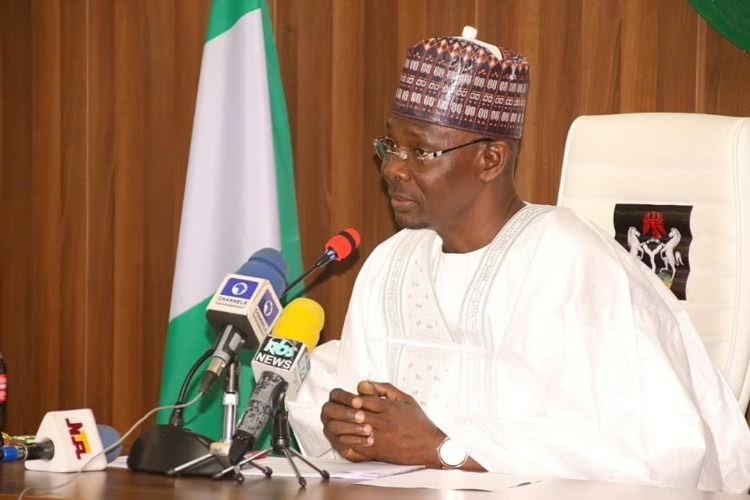After a reading of Prof Ikhariale’s very masterfully-wrought piece of 04/09/2024. I find that I will forever be telling that my stale tale of a certain American professor who attended a seminar organised by the University of Benin in the early 90s. According to the American prof, his fellow Nigerian seminar participants were to be mostly talking about the ‘good old days’ of university education in very nostalgic and picturesque terms, after which they eulogized the desideratum of ‘bringing the universities back to where it used to be’. But according to that American professor, nobody today should be talking about taking universities back to those fantastic good old days but in taking them through quantum leaps into a future being carefully reconnoitered by Chat GTP and artificial intelligence for an eventual took over. That idea – of taking Nigerian universities to where they used to be’, – where students had good teachers, where they had free food, where their laundries were done for them, and where they had employment immediately graduated – I guess is not what the esteemed education minister and Prof Ikhariale were referring in their strong stance that at 18 years, a student is physically, emotionally and mentally matured to be able to take on the rigours a university adventure. If it is, I do believe then that their argument must be non sequitur.
Let me start first by stating very clearly that the idea of a university education was not one designed for adults but for very young people most of whom are supposed to be in their early teens. As the story goes, there was a certain Greek thinker and philosopher, Socrates, aka the founder of Western philosophy and progenitor of the university system. Unable to get his ideas of egalitarianism and democracy across to a seemingly adamant society, he was often to find ready audience among a young Athenian audience, very young lads like Plato and Aristotle. The power of his thinking and the novelty of his ideas found fertile ground in the minds of his now students, to the extent that the state took notice and asked Socrates to denounce his ideas of democracy, free will and inquisitiveness or drink a poisoned cup of hemlock. The story goes that rather than recant and abandon his teachings, he chose to take the poison, and his death ultimately led his students, Plato and Aristotle to flee Athens, aka the rest of Europe and continued to bring very young persons together to continue the teachings that they had gotten from Socrates.
Advertisement
What Socrates taught those kids was that they must learn to ask questions. Therefore, at that time that Nigerian universities of the early 50s and 60s were populated by extremely matured individuals – physically and emotionally – Nigeria had just gained independence from Britain. Our population had not expanded and exploded the way it is now, and education was education to fill the manpower needs of an emerging civil service institution just emerging from the hold of the British. But today all of that has changed. Our economy is no longer based on doing the bidding of a colonial agenda, and Artificial Intelligence and Chat GPT are now extremely big players in the quantum of the poor state of affairs of our country. The age at which young people in Nigeria mature both mentally and emotionally had nothing to do with their biological ages. At the touch of a button, every one of us has the privilege of interacting with thousands and thousands of intellectual and non-intellectual materials. Today, most young persons would have no need to study law, philosophy, sociology, and some of the other courses that need one to cram to pass but courses that directly relate with solving some of the problems that hold our society in thralldom.
The belief that a university is a centre for book learning and for pedagogical investment is what I think drives the narrative that somebody must be 18 first before they qualify age-wise to attend university. A university should be more than that, taking into account that nothing much has come out of all the rigour that Nigeria has put into the universities in Nigeria. University teachers are treated like thrash in spite of all the rigour they promote, students upon graduation cannot get employment in spite of the their participation in seeming rigorous academic exercises.
Regular university entrance age for world economic power house China is 16-18. And what makes the Chinese stand out is that instead of prioritizing the age at which students gain admission to university, the government prioritizes certain courses – computer science, nursing, medicine taught in the Chinese language, software engineering, dentistry and pharmacy, civil engineering electrical and electronic engineering, tailored to meet the needs of their country. Most of these courses all appear to be based on the kind of thought processes pursued by Prof Kahneman in his book, Thinking Fast and Slow. Kahneman is winner of the Nobel Prize in Economics and he has said that ability to think must not be based on your age but with ‘how much attention one allocates to the effortful mental activities like simple and complex computations’. Put a phone in the hands of any Nigerian child today, and you will be surprised at how well they fit the Kahneman framework of thinking.











